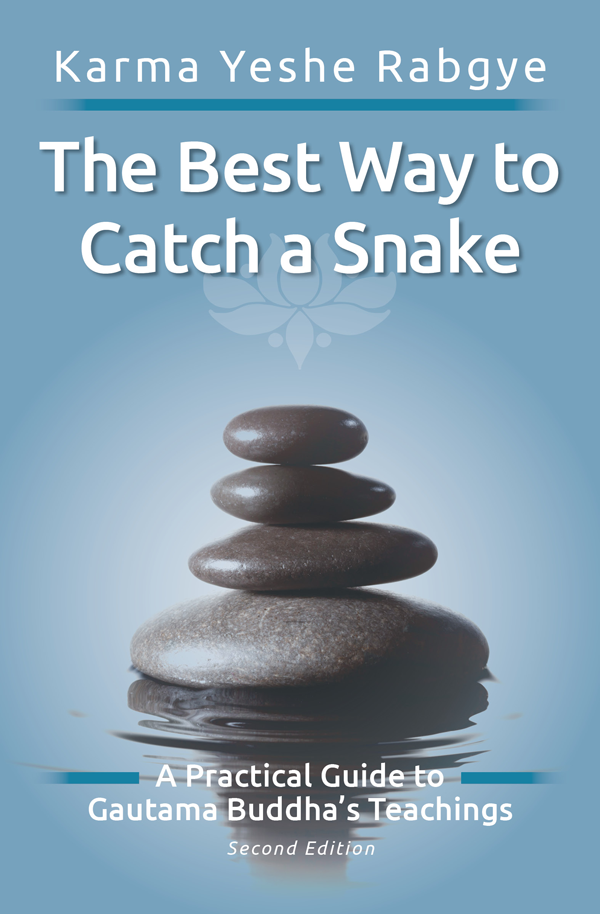Four Thoughts Introduction
There are many reasons why people are drawn to Buddhism – the tranquillity of meditation; an alternative to the religion they already follow; a lack of belief in a creator God; the romance of an Eastern religion; the theatre of ritual practices; as an answer to mental health issues; to escape the Indian caste system; to be fashionable. It is not important, however, why you venture into Buddhism; what is important is that you understand the core teachings of the Buddha. It is very difficult to make any inroads into the various forms of Buddhism if you do not know what is on offer and what you can get out of it.
Time and again I have seen people rushing into practices that are not suitable for them because they have no idea what Buddha
taught. It seems that these days, people look upon the core teachings as elementary, very basic and something that they would need just to read about once and quickly move on. There really is no need to rush head long into a medieval Tantric practice or any other sort of so- called higher practices. Without knowledge of the core teachings, you may be setting yourself up for more problems than you are likely to solve. Without this understanding, you will not see the need to work on calming your mind, taking responsibility for your actions of body, speech and mind, and generally making your life a little less crazy. Only after achieving this understanding will you be ready for practices that are based not on the word of the Buddha, but on skilful means.
The fault, of course, does not lie only with the students; the teachers must also be aware of their student’s needs. If you are teaching a Tantric practice, you should limit participation to individuals who have reached a certain level in their practice. This will ensure that students are not being taught things they are not ready for and thus not able to understand.
Teachers should also try and understand the Western culture. It is of very little benefit to talk about people being able to fly or walk through walls, as we cannot relate that to our lives. People are being taught about monsters in lakes, demons coming to kill them and all sorts of mystical beings and creatures, which are supposed to be able to do some pretty scary things. These are teachings based on nothing but fear, and again, are irrelevant to life today.
Buddhism needs a new approach in the West: One that uses examples that we can relate to, not based on fear, but ones that we can implement, and that will make a difference to our lives. We need to be inspired, not scared into following the words of Gautama Buddha. This can only be achieved by stripping away all religious dogma, superstitions and medieval stories. We need to get back to the key meanings of the Buddha’s teachings, which in
fact were simple and straightforward.













